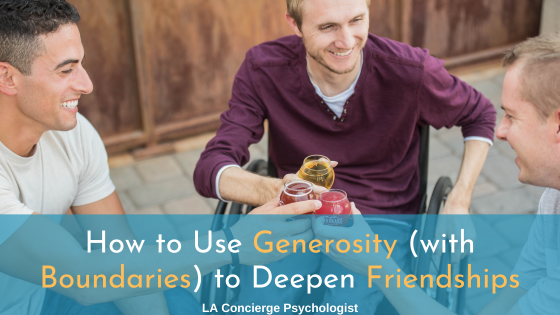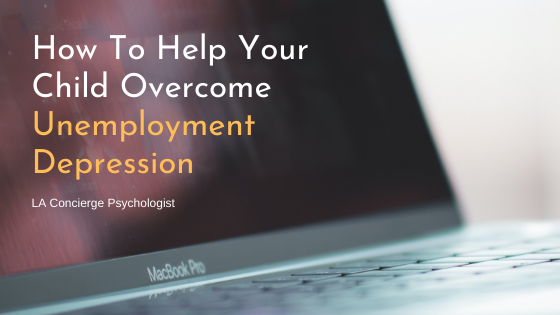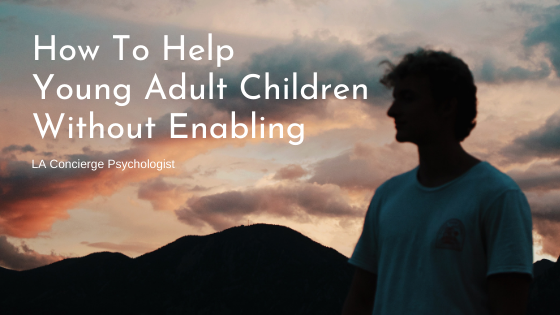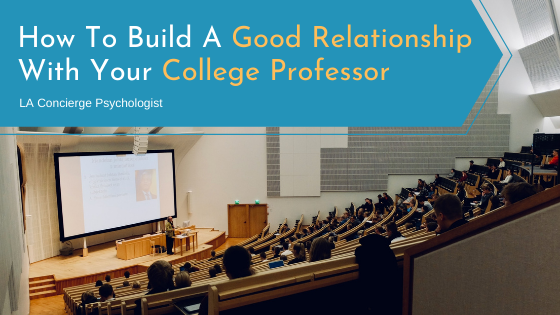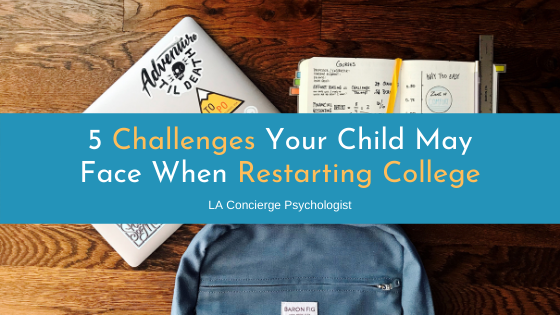Is Your Adult Child Struggling Financially, Academically, Or Emotionally?
Is an emerging adult in your family still living at home or living elsewhere at your expense? In addition to needing lodging or money for rent, they may also rely on you for food, entertainment, and other costs. You may also feel pressure to be responsible for all of your child’s emotional needs. This can be mentally taxing for you.
Are you feeling disappointed, frustrated, and bewildered at your child’s lack of progress? There may be increasing tension in your home, especially if you’ve tried to reduce your level of support or create new boundaries. You probably feel as if you’ve done everything you can to help your child succeed. But the more you try to help, the worse your relationship becomes.
Does your child seemingly have little or no motivation to improve their situation? They appear to be more interested in hanging out with friends than developing their career. Even if they do have goals, they may be struggling to bring them to fruition—falling behind academically or quitting college altogether. Maybe you have an ambitious and talented emerging adult child, but they rely too heavily on you for financial support to make their dreams come true. If so, it might feel like you’re walking the impossible tightrope of supporting your child’s ambitions while making sure you can still retire comfortably.
Perhaps you doubt whether your child will ever bridge the gap between childhood and adulthood. You may also be grieving the loss of the future you had envisioned for them. While it may take some time for them to become fully independent, therapy can help your child get unstuck, learn new skills, and find their way in the world.
Thousands Of Parents Have Overly Dependent Adult Children

Your child’s continued dependency may baffle you, especially if their siblings or peers seem to be doing well. As a result, you may think you are alone in your struggles. Despite how isolating your situation may feel, though, it is not uncommon. In fact, the number of young adults still living with their parents has nearly doubled in the past 35 years. While psychologists haven’t formally recognized it as a diagnosable disorder, the condition that many people are calling “failure to launch syndrome” is garnering more and more attention.
Why are there so many overly dependent adult children? Mental health challenges are one factor. The rates of depression, anxiety, and suicidality among young adults have increased significantly over the past twenty years. The incidence of developmental disorders, such as autism and ADHD, is likewise increasing.
Cultural and economic factors also play a role. Social media—extremely popular among young adults—can be addictive and corrosive to their self-esteem. Moreover, student loan debt has increased nearly tenfold over the past 30 years, and housing prices have ballooned. If your child wants to buy a home in Los Angeles, they can expect to pay nearly twice the price compared to ten years ago. These factors can be overwhelming for your child, causing them to feel hopeless about their situation. In turn, they shut down and don’t even try.
Emerging adults face many challenges, and they can’t be expected to overcome them overnight. When children turn 18, they don’t suddenly know how to navigate the world. Like learning to walk, they will stumble and fall many times as they learn how to be independent adults.
If you’re running out of patience with your child’s learning process or would like to accelerate it, therapy may be the answer. As an experienced therapist, I can motivate and empower your adult child to establish goals and take the necessary steps to achieve them.
Therapy Can Make Your Dependent Adult Child More Self-Reliant

As licensed therapists, we will use a wide variety of techniques and interventions to prepare your child for adulthood. Because they will need practical skills as well as psychological wellness to achieve their goals, we will help them cultivate both.
We’ll start by learning as much as we can about your child’s current challenges during an introductory session with you. From there, the first few sessions with your child will help us uncover emotional and situational factors that may be contributing to their situation. Our next priority will be to help them create an action plan to give them something to strive toward.
If your child doesn’t have a clear vision for their future, we may suggest activities that allow them to try new things to help them discover untapped passions or talents. Depending on their situation, we might encourage them to attend a one-time event, volunteer, or try a job shadow or internship. We’ll explore what they liked and didn’t like about such activities, building self-awareness of their interests and strengths.
On the other hand, your child may already have a destination in mind but is encountering psychological obstacles along the way. The distress tolerance and emotional regulation tools they will learn in therapy will free them to pursue their goals.
We can also help your child brainstorm solutions to practical problems. Many emerging adults we’ve worked with have received so much advice from authority figures that they have learned to tune it out. To avoid this difficulty, we will never tell your child what to do. Instead, we’ll ask questions that allow them to come to logical conclusions on their own. When they learn to problem-solve on their own, they’ll be more motivated to follow through with the solutions.
The critical thinking skills they’ll acquire during our conversations can help them identify potential problems with their plans. For example, perhaps an emerging adult in your family is reluctant to work hard to achieve their ambitious goal. If so, we might encourage them to research the history of someone they admire. Once they see what it would take to achieve that level of success, they will be better equipped to set reasonable goals and take proactive steps to achieve them.

Many young adults are so discouraged by past failures that they lose sight of their strengths. We promote a growth-oriented mindset that views these early “failures” as stepping stones leading to eventual success. We will encourage your child to find ways to routinely showcase their strengths, which will rebuild their self-esteem (and maybe even help them discover a new passion).
If your child has no motivation to complete important tasks, we can help them connect the dots between what they want and the life skills they need to develop to get it. For example, we’ll help a child who wants to become rich and famous discover the need to learn social and organizational skills to help them accomplish that goal. Even if their aspirations change, they will have learned transferable skills for future endeavors.
In Dr. Lee’s previous work running a life skills coaching program, she discovered that simply teaching skills is often insufficient to create lasting change. For example, it doesn’t do a young adult much good to learn interview skills if they are so anxious that they don’t even show up for their appointment. She also saw that it wasn’t helpful if an emerging adult overcame their anxiety but still had no idea how to effectively answer interview questions. We blend psychotherapy with action-oriented life coaching in our work with your child, providing both practical skills and the emotional wellbeing to apply them.
As you consider getting professional help for your overly dependent adult child, you may have some questions:
We’ve tried therapy before, and it didn’t help. How will this be any different?
Unlike typical therapists, we incorporate coaching and skill-building into my work with emerging adults. The combination of traditional therapy and coaching has proven to be a very effective way of enacting change in my clients. We have seen incredible transformations throughout the course of our work. One young adult we worked with had dropped out of college and was so discouraged and anxious that they refused to leave the house. Our work together helped them gradually acquire the confidence and social skills to come out of their shell. They were eventually able to complete school and start a successful career. It may take significant time and patience to help your own child accomplish their goals, but we believe every young adult is capable of making positive changes in their life.
Will I be able to join my child during their sessions?

If your child feels teamed up on, they won’t make any progress. Therapy should provide a safe place for them to receive unconditional support and attention and to develop a sense of autonomy. Having a parent present can compromise that. That said, we recognize how important the family component can be to treatment. When it makes sense to do so, we may occasionally ask your child permission to invite you in for a joint session. On the other hand, if you think you might benefit from therapy yourself, we can recommend a colleague for you to work with who can periodically coordinate care with us and discuss your family’s progress.
Wouldn’t residential treatment be better?
Starting therapy can be anxiety-provoking; being sent away from home is often even more stressful. In fact, it can be extremely traumatizing—especially for young adults with developmental disorders or other mental health struggles. Residential treatment can also cause the emerging adult to develop anger and resentment towards their parents. Though your child may learn essential skills while in residential, when they return home, they might struggle to generalize those skills to real-world situations. In comparison, nonresidential therapy provides personalized attention and the ability to immediately practice new skills in the real world.
There are some circumstances where residential treatment may be the right choice, such as cases of substance abuse, psychosis, or self-harm. Read my post about the pros and cons of residential treatment.
Stop Struggling And Get Your Dependent Adult Child The Help They Need
Over the past 15 years, we have never met a young adult who refused to work with us. We will quickly build a strong rapport with your child that allows me to provide the support and guidance they will need to overcome stagnancy and begin to thrive. We offer teletherapy throughout California. Visit our contact page to send us a message or set up a free, 20-minute phone consultation using the buttons below.



